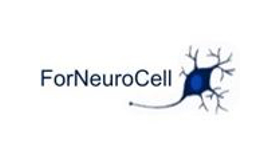FORNEUROCELL II
BAVARIAN RESEARCH ASSOCIATION FOR ADULT NEURONAL STEM CELLS

Characterization of adult neural progenitor cells inthe striatum in models of Parkinson's disease
During the current funding period we were able to show that both dopaminergic depletion and alpha-synuclein (ASN) pathology result in the disturbed adult neurogenesis in rodent models of Parkinson disease (PD). Growth factor treatment (EGF/FGF-2) was able to recruit forebrain adult neural precursor cells (aNPCs) from their origin in the subventricular zone (SVZ) into the lesioned striatum, however, without generating a mature dopaminergic phenotype. Interestingly, growth factor infusion could increase dopaminergic neurogenesis in the olfactory bulb of these animals. This suggests that dopaminergic differentiation of aNPCs can be enhanced by exogenous treatment, however, additional intrinsic and extrinsic determinants are necessary to successfully recruit to and functionally integrate newly generated dopaminergic aNPCs in the lesioned striatum. Conceptually, the current proposal aims to make use of well characterized adult dopaminergic determinants (transcription factors Pax6 and/or Lmx1 a) that physiologically generate neuronal determined aNPCs and induce a dopaminergic phenotype. We will apply these factors to aNPCs in vitro to induce a dopaminergic phenotype (aim A). In addition, we will use these determinants in vivo within the SVZ, the rostral migratory stream, or the striatum combined with EGF/FGF2 infusion in two rodent PD models, representing the dopaminergic depletion (6-0HDA lesion - aim B) or the ASN-pathology (ASN transgenic - aim C). With this approach we will be able to a) study the influence of these molecular signals on dopaminergic neurogenesis and we will b) test if dopaminergic differentiated SVZ-derived forebrain aNPCs can reside within the striatum and restore motor function.



